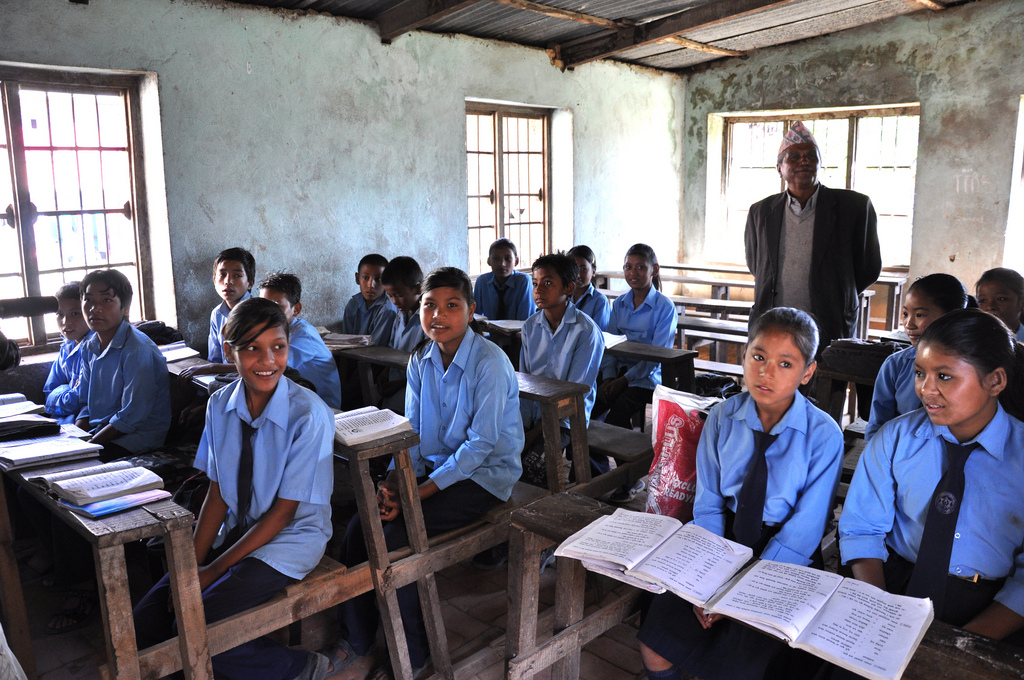“Education for youth and Commonwealth”
November 15 Young people play an integral role in advancing development, democracy and peace. At the 10th Commonwealth Youth Forum in Malta, 21-25 November, over 400 youth leaders will discuss the challenges and opportunities facing young people, and devise relevant policy solutions through four main agendas – economic, environmental, social and political. The theme of the Forum is ‘Adding Global Value… #Whatnext?’ Musa Temidayo, 24, a Commonwealth Correspondent from Nigeria looks at the critical role of education.
Young people play an integral role in advancing development, democracy and peace. At the 10th Commonwealth Youth Forum in Malta, 21-25 November, over 400 youth leaders will discuss the challenges and opportunities facing young people, and devise relevant policy solutions through four main agendas – economic, environmental, social and political. The theme of the Forum is ‘Adding Global Value… #Whatnext?’ Musa Temidayo, 24, a Commonwealth Correspondent from Nigeria looks at the critical role of education.
Exclusion has many faces, so also has the term ‘quality’ when it comes to education.
One of the most crucial challenges facing third world countries is preparing their young people for the future. The place of education in this cannot be undermined. The education system is both performing and failing; the degree varies from country to country, even as it has been proved that the youth constitute the work force of every nation.
Countless youth forums have stressed the significance of quality education and practical strategies to tackle specific needs of young people to prepare them for the future. The problem here is quality and inclusion, not access.
In most third world countries, the level of quality education and inclusion you get is based on your social class. Governments often lack the infrastructure to adequately monitor and maintain the quality of education at all levels, and inclusive education suffers the backlash of their inabilities.
If we are to count the rigours that the everyday youth faces in each of these developing countries, high youth unemployment ranks first on this list. This can also be linked as a catalyst that influences protest and its accompanying period of political, social, and economic upheaval such as the Arab Spring and Occupy Nigeria. Quality education without any discrimination should now be on the forefront for any government.
The current education system does not satisfy the needs of the youth. The transition from education to employment has never been easy for youth in developing countries. With the ever-increasing growth of unemployment, more and more youth are graduating with little to no hope they will be employed or have enough capital to fund their own business. A professor of international relations once told me that the university system is like a protected facility, while outside the school walls there is a war, and we should come prepared to fight. The current system does not prepare youths enough for what they are to face beyond the school walls.
Youths graduate, and to their greatest surprise find that a large chunk of what they were taught literally has no relevance in the corporate world, except for those who studied courses like medicine or nursing. They find themselves lacking basic functional skills needed to support their post school life. Youths are neither trained for quality jobs nor for entrepreneurship. To bridge the gap and ease the transition from school to work, there should be a consensus among policy makers and stakeholders that access to inclusive and quality education is a problem for some youths. They should recognise the present education system is responsible for unemployment, curriculum should be reformed and made employment-based, curriculum reform should relate to preparing students for both self-reliance and white collar jobs and above all, school work should be tailored towards societal needs.
Despite many talks, conferences, global actions and roadmap projects, it is surprising to see that making youth productive and comfortable in their personal lives still poses a grave challenge. Some youths are being faced with limitations due to their disabilities. Approximately 80 per cent of the world’s disabled population lives in developing countries. These individuals are often limited by both physical and social barriers, which exclude them from society and prevent them from actively participating in the development of their nations. Inclusive education welcomes diversity, not a form of special education alone. It also benefits all youth on a level platform. Inclusive education does not target the needs of one youth at the expense of another, but provides equal access to education or making certain provisions for certain categories of children without restricting them to a ‘special’ unit. Government can ensure this by initiating and educating grassroots debate in local communities about inclusion as a right; there should be increased grassroots action and more strengthening of policy in order to promote protection.
Despite enormous progress made in the advancement of education and enlightenment, some percentage of people still see informal education with a narrow mind-set and some youth are misinformed about it. They feel informal education would not give them the type of ‘good life’ that formal education affords, and societies are not helping.
Informal education has been identified as a promising avenue through which young adults can acquire marketable skills that will enable them to obtain employment. Vocational skills like tailoring, make-up, and photography have in the recent years employed both the formally educated unemployed youth and the informally educated ones. What can be done to consolidate this is for policy makers to work out a National Certification Scheme, which will accredit these students to gainful employment in both the public and private sector.
I will conclude with this observation from Rebecca E. Robert: “Everyone says entrepreneurship is the key, I think quality (and Inclusive) education is more important because what is the point giving out monies for start-ups when the entrepreneurs won’t be able to compete with the big ones, however be educated (formally and informally) and they will have the ability to create employment and sustain a business”.
Reach me on Twitter @Simply_dayor
photo credit: in the schoolroom via photopin (license)
…………………………………………………………………………………………………………………
About me: I am from Nigeria, currently studying International Relations at Obafemi Awolowo University Ile-Ife Osun state. I’m also the Editor-in- Chief for the department. I love travelling and singing, and have interest in Management and Developmental Issues.
Aside from studying, I work as as the Chairman of my department’s magazine. I want to be a Manager-Human Resource & Conflict Management, and also hope to serve in the Nigerian foreign service.
…………………………………………………………………………………………………………………
Opinions expressed in this article are those of the author and do not necessarily represent the views of the Commonwealth Youth Programme. Articles are published in a spirit of dialogue, respect and understanding. If you disagree, why not submit a response.
To learn more about becoming a Commonwealth Correspondent please visit: http://www.yourcommonwealth.org/submit-articles/commonwealthcorrespondents/
…………………………………………………………………………………………………………………




